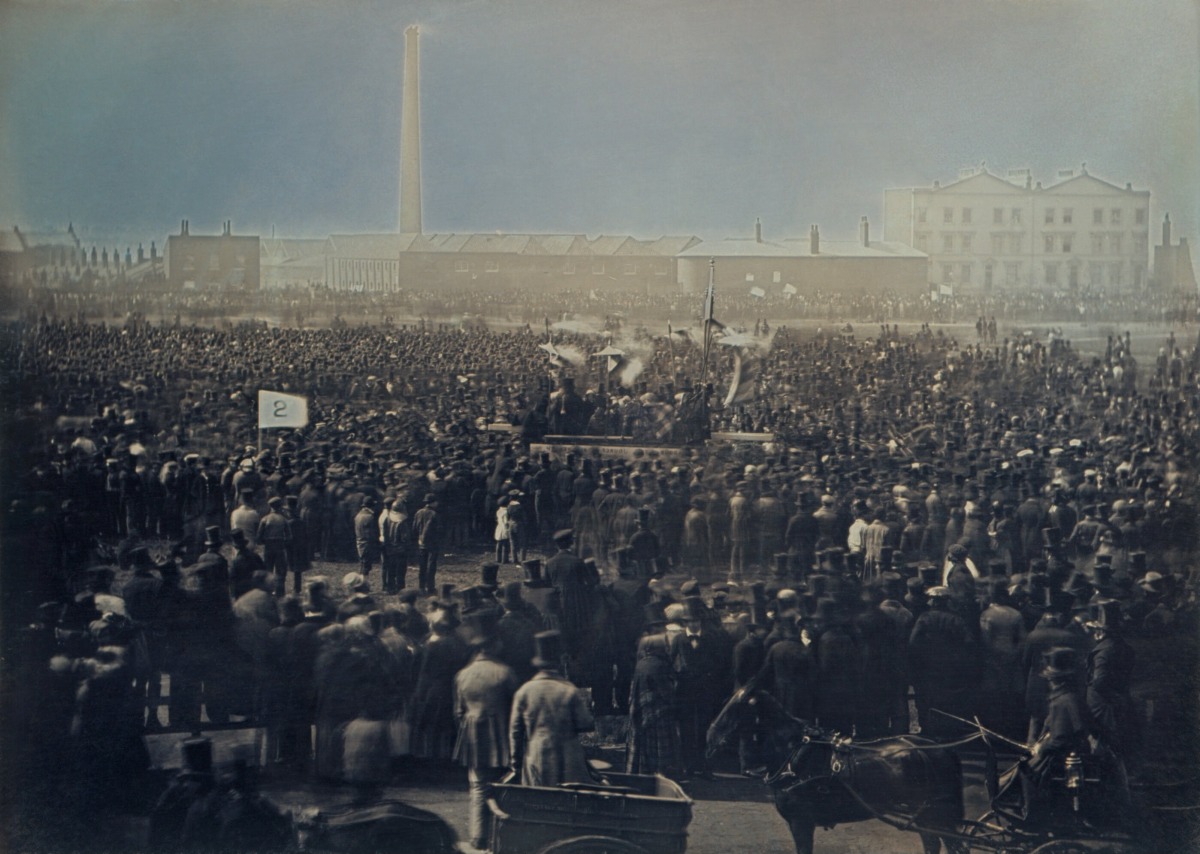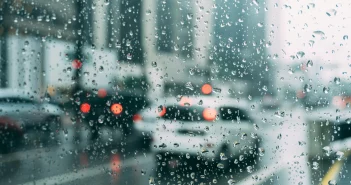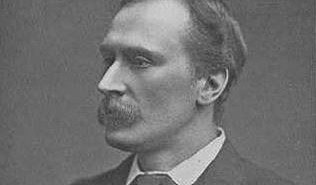My arse was born before my head. I’m told I shouldn’t remember, but I do. I recall my skull being stuck in the warm, wet cave that’d been home for nine months; recall, as well, starting the struggle to breathe. With all my infant might I managed to shimmy out backward, so the rest of me could join my bum in the chilly dominion of which it had become a citizen. The cold air was terrifying yet so sweet to my lungs when I finally slid free. My left foot was curled in, my left leg being shorter than its mate. My left hip is dodgy as well. With my crutch I’m alright, indeed faster than many. That was my beginning, and curses on any who don’t believe me.
Twenty years later I went through it again; the yearning, that is, to leave what was cosy and safe in search of a place where I could properly breathe. The cosy place was this place: Cobb’s Hole, North Yorkshire. Thatched cottages huddled together in the shadow of massive sandstone cliffs. At the bottom of our cobbled street yawns the North Sea, big and cold as the world itself. Tiny boats sliding about on its great black waves. And there was I, stuck again in a womb on the edge of wildness.
Father was a fisherman and mother was a mother. Near every house had the same matched set. The fathers spoke little, but when they did it was to say something that sounded thoughtful and wise. The mothers were worn out with work and worry. Brothers joined fathers just as soon as they were big enough. Like all daughters, I was given a needle and taught to mend the nets. I’ve heard folk talk of weaving nets, but in truth it’s not so much weaving as knitting. Instead of two thin needles you have one fat netting needle and a gauge that decides the size of the mesh. The nose of the needle dips over and down, over and down, and the flax unwinds into this pattern, this web, that grows and grows beneath your fingers. It’s simple but not easy, if you see what I mean. You can’t be larking about. A fisherman depends on his net, and a net depends on its knots. But here, I’ve gone right past the thing I wanted to talk about. I wanted to talk about when I was twenty.
And Rosanna.
Rosanna was a ladies’ maid at the Verinder estate, about two miles northwest of Cobb’s Hole. She had Friday afternoons off, and the groom would bring the two of us into Frizinghall. Rosanna might buy hairpins and bows. I’d get the latest issue of the Northern Star and Leeds General Advertiser. If it was dry we’d sit on the grass in the park and I’d read to her about suffrage and strikes. Her small face would squint up at me from under her straw bonnet. “What is to happen, Lucy?” she’d say, as if I was reading her a fairy story. “There is such suffering in the world,” she’d say, and pull her grey cloak closer about her shoulders as if the thought made her cold. She had a way of making such remarks, simple on the surface, but coming from such a tender part of her heart that you’d shiver to hear them expressed in her tiny bird’s voice.
When you’re young you think the world has only been waiting for you to turn up and put it right. We read with great excitement of the Chartist camp on Bingley Moor – so close by! The great crowds, the fiery speeches. Then the arrests. It was frightening and glorious to feel ourselves on the cusp of revolution, and we grew very dear to each other as we sat there, braiding blades of early spring grass, waiting for mobs of angry workers to march past us on their way to storm the Magistrates’ Court. I tell you, we could nearly hear their boots on the cobbles. “England is like a pot on the boil,” she’d say, into the green stillness. They were champion, those afternoons with Rosanna.
She was not beautiful; nothing so ordinary. Just good, through and through. She believed in a sort of sunlit decency that nothing in her experience gave her reason to expect. She was from London, orphaned when she was only eight. Her curled shoulders told of her suffering; her lovely fingers, gesturing, making ecstatic pictures in the air, told of her faith.
I had shagged women already. Two, to be exact. One was much older than me and gave me lots of instructions. The other was my own age, and those meetings were much friendlier but fumbly and quick, usually hands under clothes rather than clothes off. From the first time I met Rosanna I felt if I could once sink inside her creamy flesh, could penetrate to the heat beneath that sweet nature, that it would change me. Would set summat free inside me. I don’t know how better to say it than that. It was a young sort of love, in which you want to have the person and be the person all at the same time. And somehow this will make everything right. Oh, why must I try to explain it? I loved her. With all I had, I loved her.
I kissed her once. Just once. It was among the firs on the path that leads to the cove. Her back was to a tree and I pressed her into it, pinned her with my hips and chest and arms, felt her breath fluttering against my neck. Smelled her private smells, stroked her hair, lifted her chin with my hand. And kissed her. There was no surprise in her. She had known how I felt, had seen it, and had shown neither excitement nor revulsion but only a shy acceptance of my love. We had often held hands, embraced, even danced together playfully. But to kiss her. To open those pretty lips with my tongue, explore the inside of her, to breathe into that angel mouth. I feel it still.
But our ending came wrapped in our beginning. For beneath my lips, my hands, I felt her submitting to me. Not desiring me, holding me; just allowing me to do what I liked with her. The world, after all, had done what it liked with her and I was merely a part of the world. Nothing more. She could take herself away, could make herself open and empty. I almost hated her for it. Why withhold herself from me, the one person who saw her true worth? Why could she not at least try to love me?
The answer was Blake.
Blake was nobody, some well-travelled third cousin of the Verinders who ended up marrying their daughter. Rich people always marry their cousins, they haven’t enough imagination for anything else, and besides, it keeps all that lovely money within the family. I met him once, and found him to be your standard upper-class halfwit. Not really a worthy subject of either her love or my hatred. But we were young. Our feelings were flames we couldn’t stop staring into.
I still get a knot in my stomach when I remember that last day. Summer it was, and proper hot. Rosanna appeared in my room, and she was shaking all over and looked like she might be sick. She had seen something, some proof that Blake fancied the Verinder woman. I sat her down on my bed, and her breath turned to sobs. She wept into my shoulder because her love was unrequited. The irony! I suddenly laughed; a low, bitter chuckle.
She backed away. Gaped at me, like a mouse who’s just discovered her best mate is a cat. “How can you snicker at my broken heart?”
I lifted her chin with my finger, reminding us both of our one kiss. “How can you ignore mine?” I asked softly.
She looked away then. I knew it was hopeless, I knew. Still I pressed on, daft and love-struck as I was. “We should get away from here.”
Her dark eyes widened. “What do you mean?”
“To London. Together. I’ve money saved. We could live like sisters. We talk proper, write proper, we’re good with our needles. We could make a living. We could make a life.” It came out all higgledy-piggledy, I’d been wanting to say it for so long.
Rosanna’s eyebrows went that high, they nearly disappeared into the black tangle of her hair. Then she abruptly looked down at her hands. Her eyes grew wet. “Lucy, you are a dear friend.”
“Give over.”
“You’re kinder to me than anyone ever has been.” She raised herself, trembling, to her feet. “But where I’m going, you cannot follow.” And with that, she turned and left. I heard her footsteps going downstairs, heard the door slam shut.
I didn’t cry. Sometimes summat hits you as though you’ve walked straight into the sea, and you’re left gasping, cold all over. I knew, somehow, that this was the end of Rosanna and me.
When the letter came, arriving with autumn’s swollen moon, her small, careful printing on the envelope made my breath stick in my throat. Maybe, possibly, she was writing from someplace warm and bright. Maybe she was sitting in the grass, under a kindly sun, waiting for me. Cruel hope made me tear open the letter, only to learn that Rosanna was dead. By her own hand. The letter an apology and a goodbye.
Everything was strange. The scars in our table, the salty smell of the broth my mother stirred. My father’s tuneless whistle, carried by the wind up our narrow street. A cold wind it was, and the rumble of waves beneath it, and in among these things that meant home, I was alone. The letter shook in my hand. The final line mocked me. I will forever be, your Rosanna.
By year’s end, the blaze of revolt had gone to ash in the grate. The Chartists had largely given up. Men like Blake held the world like a ball between their soft hands. I’d have gladly belted Blake in the bollocks with my crutch. But to what end? It seemed there was no cause left to join. I had missed everything.
Life had shown me what could be and then had shut the door. No, it said, you cannot have your love returned by a lass so gentle it’d make you weep. No, you cannot make things better for your mother or your father; take some of the worry off their brows, help them stand a bit straighter. No, you cannot put warm food in kiddies’ bellies or make sure the men get a fair price for their catch. That was all a joke, m’love. In truth, life is long, lonesome and grey and it reeks of fish, dampness and despair. Yearning gets you nowt but an ache in your ribs every time you try to take a clean breath. This is all there is, pet. Your fault for dreaming.
All that winter I trudged along the shoreline, wind burning my face, sand stinging my eyes and gritting my hair. On the one side of me, cobbled paths and firelight glimpsed through windows, and chimney smoke rising like song over our little village. On the other, the sea. Dark and wild and promising an end to remembering. Unable to choose between them, I’d walk until the ache in my hip was blinding me. Then, emptied for a time of sadness and longing, I’d hobble back to our house and up the stairs to my small bed.
Mary Silkey’s husband Tom died in late December. He died on land – his heart, they said – so she was able to have him laid out proper, his red hair all tidied in the coffin as it never was in life. A body at a fisherman’s wake is a rare thing. With that and Christmas just past, the village was in a mood to give Tom a good send-off.
Mary’s youngest, Jane, was stuck in Scarborough as the tracks were flooded, so the burial was delayed for her. Life arranged itself around the Silkey cottage for those three days. The mourning started out sombre but grew raucous, as it will do. I had played with Jane when we were little but had quite lost touch with her since; the rest of the Silkeys were, to me, fair and freckled nodding neighbours. There were sprigs of rosemary all around the coffin, for remembrance and to mask the scent of death. Nothing, however, to cover the sweat-and-whiskey smell of the living. There’s little worse than feeling lonesome in a crowd. By the time the music started, I was itching to be elsewhere.
At the centre of things was Mary, her stout figure being helped into chairs, helped to a cup of tea or glass of whiskey or a bit of cake. May God forgive me, but I was fiercely jealous of Mary then. She who was waited on hand and foot. She who told stories about her Tom that’d bore the arse off the most Christian soul; yet the villagers greedily drank in every word. I had held my grief for Rosanna close, and it had pained me all the more for that. If Rosanna had been Robert, would I have been invited to share it? Would I have eaten cake and told tedious stories too?
On the fourth day, a Sunday, Tom was brought to the churchyard and I went home, limping up the stairs to my room and shutting the door. I settled into the chair by the window and watched the little patch of sky that belonged to me. It was quiet, apart from the seagulls, the creak of moored boats, and the shush-shush of the sea, like a mother soothing her child.
The needle was on the bedside locker, and then it was in my hand. The sheen of the flax against my fingers was truth, or what I know of it. And then the solid, warm wood of the gauge. The first knot stitched me to the work. After that, everything fell away but the practical dance of the needle. My hands were strong and quick and I fell into a trance watching them. It was as though there was a curtain of loops and ties that was there all along, a glimmer in the air that I could coax and tame into a simple, needed thing.
Hours passed; the sky lost its shyness and deepened to an afternoon blue.
A net works by trapping what’s worth summat and letting what isn’t move through. It doesn’t try to hold everything. It might be that as I sat there, the net growing length and heft and draping itself across my lap, I was also starting to let things move through. Maybe that was when my self-pity drowned; to the surface came the knowing that Rosanna was never for me, any more than Blake was for her. Oh, it still hurt to think of her. But it got to be less like a wound and more like a tender place. Summat I could maybe live with.
A net gathers in what you need. As the light dimmed and the waves swelled, I thought I could feel mine gathering the broken parts of me from where they’d been scattered, across the ocean floor of my mind. During that sleepless night I fastened myself back together again. One strong knot at a time.
When pink clouds marbled the morning sky, my father came to find me. He pushed on the door, but it couldn’t open all the way. Overnight, the net had crept across the floor and over the bed; it had filled the whole room. I’d tied the last knot and slipped the gauge free, and now was sat against the wall, my creation heavy on my legs. I felt peaceful.
My father peeked round the door. He was amazed at what he saw. I knew this because one of his white eyebrows went up a bit and he began to stroke his beard. “Here,” he said. “What’s this?”
“I’ve made a net.”
“Aye, I can see that,” he said. “Did you not think to make it out of doors?”
“No,” I admitted. I didn’t really think at all. How was the burial?”
“Fine, lass.” He crouched down and rubbed the flax between two fingers. “It’s good work, is this.”
“It’s a bloody queer size and shape.”
“E’en so, we’ll make use of it. Mind you, we’ll have to get it nearer to the fish than this.” He stood up slowly, his knees stiff. “If I start from this end and roll it up, like a rug – if I roll it tight enough, we can shove it out that window.”
And that is the end of the story, though it’s also the beginning of another. For, when we did push it out the window to the path below, who do you suppose was on that path? Only Jane Silkey, paying us a call during her visit home from Scarborough. The net unrolled a bit in the air and landed right on top of her. She screeched and fell backward onto her arse. From above, we could see her dark dress and yellow hair spread out, her arms and legs wriggling about beneath the mesh.
“Flippin’ ‘eck,” said my father.
I hopped downstairs and out the door. “Sorry sorry sorry!” said I, as I tried to free her.
And what did Jane do? She could’ve cried. She could’ve boxed my ears, once her arms weren’t pinned. She could’ve said, “Lucy Yolland, I always knew you’d grow up to be a heathen and a menace!” And I wouldn’t have blamed her one bit.
Instead of which, she laughed. As I lifted the net’s hem over her head, she looked right at me with her lively grey eyes and she laughed like a mad thing.
And I knew.
Featured Image of the Great Chartist Meeting on Kennington Common, London in 1848




